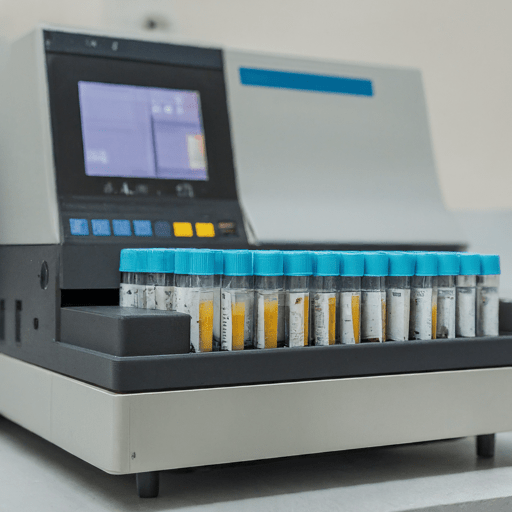Importance of Liver Function Tests:

Your liver, a powerhouse organ located under your rib cage on the right side of your abdomen, is responsible for vital functions that keep you healthy. It purifies your blood, produces crucial proteins, and breaks down toxins. Given its critical role, maintaining liver health is paramount, and one of the primary tools for monitoring liver health is the Liver Function Test (LFT). This guide is designed to help you understand the need and importance of liver function tests in the diagnosis and prognosis of various diseases.
Understanding Liver Function Tests
Liver Function Tests (LFTs) are blood tests used to help diagnose and monitor liver disease or damage. They measure the levels of enzymes, proteins, and substances in your blood that are either produced by the liver or released when the liver is damaged. The results of these tests can provide vital information about the state of your liver.
Key Components of Liver Function Tests
- Alanine Transaminase (ALT) – This enzyme is typically found in the liver, and elevated levels in the blood can suggest liver damage.
- Aspartate Transaminase (AST) – Like ALT, AST is another enzyme that can indicate liver damage when found in high levels in the bloodstream.
- Alkaline Phosphatase (ALP) – An enzyme related to the bile ducts; high levels can indicate blockages or other bile duct problems.
- Bilirubin – This substance is produced during the normal breakdown of red blood cells. Elevated levels can result in jaundice and indicate liver or bile duct issues.
- Albumin and Total Protein – These tests measure how well the liver is making the proteins that your body needs.
These components, when measured, give a comprehensive overview of how well your liver is functioning and whether there are any signs of trouble.
Why Liver Function Tests are Essential
Early Detection of Liver Issues
The liver is a remarkably resilient organ, capable of functioning even when significantly damaged. However, this also means that symptoms of liver disease often appear only after substantial damage has occurred. Regular LFTs can help catch liver disease early, potentially before irreversible damage takes place.
Diagnosis of Specific Liver Conditions
LFTs help in diagnosing specific conditions like hepatitis, cirrhosis, and fatty liver disease. Each liver condition affects the LFT differently. For instance, in acute viral hepatitis, ALT and AST levels can be markedly elevated, reflecting a high degree of inflammation or damage to liver cells.
Monitoring Disease Progression and Treatment Efficacy
Once a liver disease is diagnosed, LFTs are repeatedly used to monitor the progression of the disease and the efficacy of treatment. For instance, in chronic liver diseases like hepatitis C, decreasing levels of ALT and AST might indicate that the treatment is effective.
Guiding Medical Decisions
The results from LFTs can influence a range of medical decisions—from the urgency of treatment, the need for a liver biopsy, to decisions about potentially hepatotoxic medications (medications that can cause liver damage).
When Should You Get a Liver Function Test?
Risk Factors and Symptoms
- Risk Factors: You should consider LFTs if you are at risk of liver diseases due to factors like alcohol use, family history of liver disease, obesity, diabetes, or if you use certain medications that affect the liver.
- Symptoms: Symptoms that might warrant an LFT include jaundice (yellowing of the skin or eyes), dark urine, light-colored stool, persistent fatigue, nausea, and abdominal pain.
Regular Health Checkups
Even in the absence of symptoms or specific risk factors, LFTs may be included as part of your routine health checkup, especially if you are over the age of 40 or have conditions like diabetes or high blood pressure.
Understanding Your Test Results
Interpreting LFTs can be complex, as the results can be influenced by many factors including age, gender, body mass, and even the time of day when the test was conducted. Typically, results outside the normal range might indicate a problem, but they don’t specifically pinpoint what the problem is. Further diagnostic tests and a comprehensive evaluation by a healthcare provider are often required to identify the exact cause of abnormal results.
The Prognostic Value of LFTs
LFTs not only help in diagnosing liver conditions but also in prognostic evaluations. For instance, in chronic liver diseases, certain patterns in the LFTs can predict the risk of developing complications like liver failure. This prognostic value of LFTs is crucial in managing and altering the course of liver diseases.
Final Thoughts
Liver function tests are vital, relatively simple blood tests that play a critical role in the health care system. They serve as an essential diagnostic tool for detecting liver diseases early and monitoring their progression. For individuals at risk or those experiencing symptoms suggestive of liver disease, LFTs can provide crucial insights and aid in making timely medical decisions.
By regularly incorporating LFTs in your health checkups, especially if you are at risk, you can ensure that your liver health is monitored closely, thereby taking a significant step towards maintaining overall health and well-being. Remember, when it comes to liver health, prevention and early intervention are key.
Keeping informed about the significance of these tests and understanding their broader role in healthcare can empower you to make better health decisions and engage more proactively with your healthcare provider.

Leave a Reply